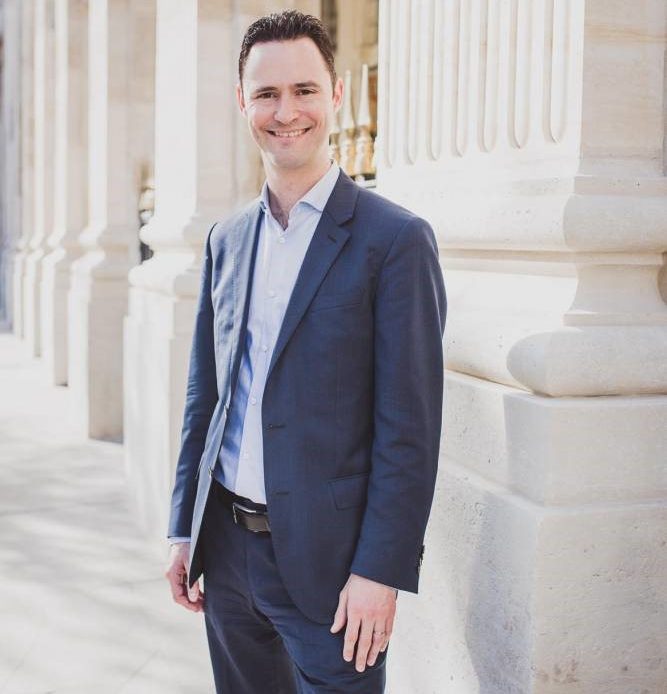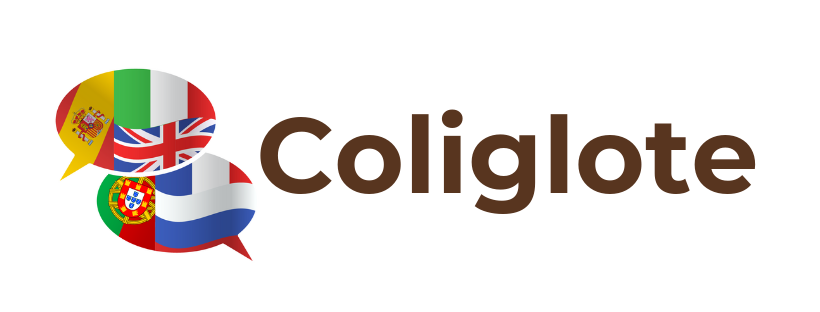Interview. An association proposes to speak Esperanto within the European institutions to counter the rise of English. Utopia?
Remarks collected by Baudouin Eschapasse, and published on 31/07/2020, in an article in Le Point.fr
Entrepreneur, founder of numerous start-ups (Planorama in 2009, an artificial intelligence company, but also Yestransfer in 2018, a money transfer platform), Vincent Jacques, 38 years old, chairs the Esperanto Citizen Movement for Europe. This association, created last year, aims to promote this language on a continental scale. Explanations.
Le Point: On July 26, 1887, Eliezer Lewi (Ludwik) Zamenhof, a Russian-born physician, published a work in Warsaw in which he promoted an international language that would become the language of the entire planet. Signed with the pseudonym Doktoro Esperanto (“the doctor who hopes”), this book forms the birth certificate of a new language: Esperanto. How many people speak it today?

Born in Amiens, Vincent Jacques now promotes Esperanto at the European level.. © DR
Vincent Jacques: There are around 2 million speakers of Esperanto in the world, including 100,000 in France. This language, invented by Zamenhof, adopts a common matrix to many idioms: French, German, English, Spanish, Latin, Greek and even a little Russian.
In the spirit of Zamenhof, this common language was supposed to allow the inhabitants of the world to understand each other better and thus to stop making war against each other…
Zamenhof’s project does indeed start from a humanistic idea. In his hometown, in a Poland occupied by Russia, several communities coexisted without understanding each other: Jews (who spoke Yiddish), Poles, German speakers and Russian speakers, the latter having the advantage of the official status of the Russian language. The other communities were discriminated against, whether in business or in the administration, because they did not master the Russian language. Zamenhof has therefore built a new language that does not belong to a particular nation, whose structure is simple enough for everyone to make it their own. This language is a link between individuals, it makes it easy to understand each other with less effort.
How did you discover this language and how long did it take you to learn Esperanto?
After studying in France (HEC and Sciences Po) and then in the United States (at UCLA), I did an internship in New York with the BNP Paribas group in 2003. It was during this stay that I started learning Esperanto. I learned on the Internet via an online platform. In two months I had already acquired a good level. I was the first to be amazed at how easy it was for me to learn the language. It is extremely logical, which is why scientists like it so much.
How did your idea to promote Esperanto as a European language come about?
I started my career at the Boston Consulting Group before becoming an entrepreneur. As a strong supporter of the European construction, I noticed that, despite everything, French was losing ground within the European institutions. Over the past twenty years, English has established itself everywhere as the language of exchange within the political bodies that govern the continent. If English occupies such an important place in Europe today, it is for a simple reason: the Union has 24 official languages in addition to the regional languages. That’s a lot! However, only 5% of the working documents within the bodies are translated. To do it for everyone would be too expensive. Yet it is very important that each country makes its voice heard. It is worth remembering that 70% of French regulations are based on European Union decisions.
Esperanto offers a common denominator to all European peoples.
How can Esperanto make things better?
As I said at the beginning, Esperanto is a kind of matrix language. It offers a common denominator to all European peoples. Above all, it is a foreign language for everyone. Talking in a second language puts everyone on an equal footing. A common language would strengthen a common culture. We have a common currency, but it’s a bit short to create a sense of belonging. The issue of language is a sensitive one and Esperanto respects the diversity of local languages and, therefore, the linguistic sovereignty of everyone. In many countries (and not only in Nigeria or Botswana), English is experienced as a colonial language. Its more or less good mastery creates a two-tier society. With Esperanto, no more problems!
Is that why you are campaigning for Esperanto to be taught from elementary school onwards?
Yes, experiments have been conducted in CM1. The earlier we start, the easier it is for the children to learn other languages. Esperanto could enable the citizens of tomorrow to be all polyglot. We are pushing for Esperanto to become an optional language in secondary school, up to the baccalaureate.
You founded the movement “Esperanto for Europe” in 2019, what is your goal?
Our project may seem ambitious, but we want Esperanto to become the 25th official language of the European Union (EU). In doing so, we want to give a new breath of life to the EU authorities by promoting Esperanto. We have supported an experimental phase of learning Esperanto in five French schools. We are building links with about thirty associations, but also with academies. The World Esperanto Association (UEA) supports us in our approach. The stakes are high. We want more equity between the member countries of the European Union, but we also want the preservation of cultural and linguistic diversity at the continental level. My fear is really that, under the battering of English, national languages will become local patois.
So Brexit has come at the right time?
Yes. It helped to put the issue on the table. But let’s be clear, just because the United Kingdom has left the European Union, it doesn’t mean that we’ve stopped exchanging in English.
The Covid-19 outbreak must not make your business any better?
Indeed. With the sanitary situation, our movement has not been able to carry out many actions these last months (impossible to achieve what we had planned for Europe Day on May 9, for example), but we are still pursuing the same fight and the same objectives! We know that we won’t get there in one day, we are planning for the long term.
Sources : L’espéranto, future langue officielle de l’Europe ?, via @LePoint https://www.lepoint.fr/tiny/1-2386220


Dimitar Berberu
24 January 2021 at 14 h 17 minI strongly support Esperanto as the language of AI, with soon majority (compared to people) AI robots/chatbots able to communicate via much easier Esperanto (100x easier to implement in Google Translate).
Paradigm shift is required to quickly learn auxiliary Esperanto, instead of trying to push the platoing efforts to improve the Naturla Language Understanding for 7000+ languages (still ongoing, but we have workable plan B).
The Data Philosopher
Dimitar
Berberu Analytics